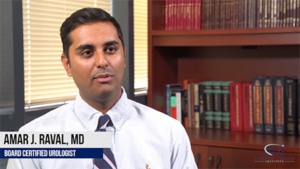The level of testosterone hormone in the body naturally declines as a man grows older. In fact, up to 40% of all men aged 45 years and older experience the effects of low testosterone. The symptoms of low testosterone may appear even earlier in some men.
Also called hypogonadism or low-T, low testosterone is characterized by a variety of symptoms such as:
- Low libido (decreased sex drive)
- Fatigue and lethargy
- Erectile dysfunction (impotence)
- Reduced testicle size
- Breast growth in men (gynecomastia)
- Loss of body and facial hair
- Muscle weakness
- Thinning of bones (osteoporosis)
- Moodiness, irritability and depression
- Decreased sense of well-being
- Increased body fat or reduced muscle mass
- Difficulties in concentration
- Memory loss and sleep disturbances
- Decreased hemoglobin level and mild anemia
- Skin changes such as fine wrinkles
- Diagnosis of low testosterone
 Low-T is diagnosed by measuring the quantity of testosterone in the blood. To clearly assess the level of testosterone, a urologist will request blood tests for both total testosterone and free testosterone. Often, it takes several measurements to confirm that a man has low-T because the levels tend to change throughout the day, with the highest levels occurring in the morning. Testosterone levels are also affected by body mass index (BMI), alcohol consumption, nutrition, age, illness and certain medications. Additional tests for sex hormones such as follicle stimulating hormone (FSH) and luteinizing hormone (LH) may also be requested by the urologist for a better picture.
Low-T is diagnosed by measuring the quantity of testosterone in the blood. To clearly assess the level of testosterone, a urologist will request blood tests for both total testosterone and free testosterone. Often, it takes several measurements to confirm that a man has low-T because the levels tend to change throughout the day, with the highest levels occurring in the morning. Testosterone levels are also affected by body mass index (BMI), alcohol consumption, nutrition, age, illness and certain medications. Additional tests for sex hormones such as follicle stimulating hormone (FSH) and luteinizing hormone (LH) may also be requested by the urologist for a better picture.
Treatment of Low Testosterone
If low-T is diagnosed, the missing hormones may be replaced through hormone replacement therapy, restoring the body’s testosterone levels to normal. In some cases, however, particularly when low-T is diagnosed but no troublesome symptoms are noted, the urologist may not administer any treatment.
For men with bothersome symptoms, the therapy is administered to remove the symptoms and associated sexual problems. Testosterone replacement therapy can be given in different forms and the urologist will discuss options with the patient before deciding on the most appropriate method. After the treatment begins, testosterone levels are monitored to ensure the most effective dose is given.
The different ways of administering testosterone include:
- Injections – The urologist gives regular injections deep into a muscle (intramuscular injection) every 2-3 weeks to 3 months depending on the type of injection chosen. When appropriate, the urologist may delegate the task of injecting testosterone to a nurse or teach the patient how to self-inject. When done correctly, the injections are not painful.
- Testosterone Implants – Cylindrical pellets are inserted into the abdomen, thigh or buttock by the urologist under local anesthetic, once every 3-6 months.
- Testosterone Patches – Used every day and applied on different areas of the body, including arms, back, buttocks and abdomen, the patches work similarly to nicotine patches used by people trying to quit smoking. They deliver testosterone hormone gradually through the skin.
- Testosterone Gel – These gels are applied to clean dry skin, usually on the arm, shoulder, back or abdomen. They should be applied after showering to prevent the gel from washing off too quickly.
There are several benefits that can be derived from testosterone replacement therapy. They include:
- Improved sexual function
- Enhanced mental sharpness
- Increased bone density and protection against osteoporosis
- Increased muscle mass and loss of body fat
- Greater strength and improved physical performance
- Enhanced mood and better sense of well-being
Are you experiencing any bothersome symptoms and suspect you could be having low testosterone? Speak with your doctor as soon as possible about the problem. You do not have to live with these symptoms when effective treatment is available. For more information about testosterone replacement therapy, visit the Advanced Urology Institute website.


